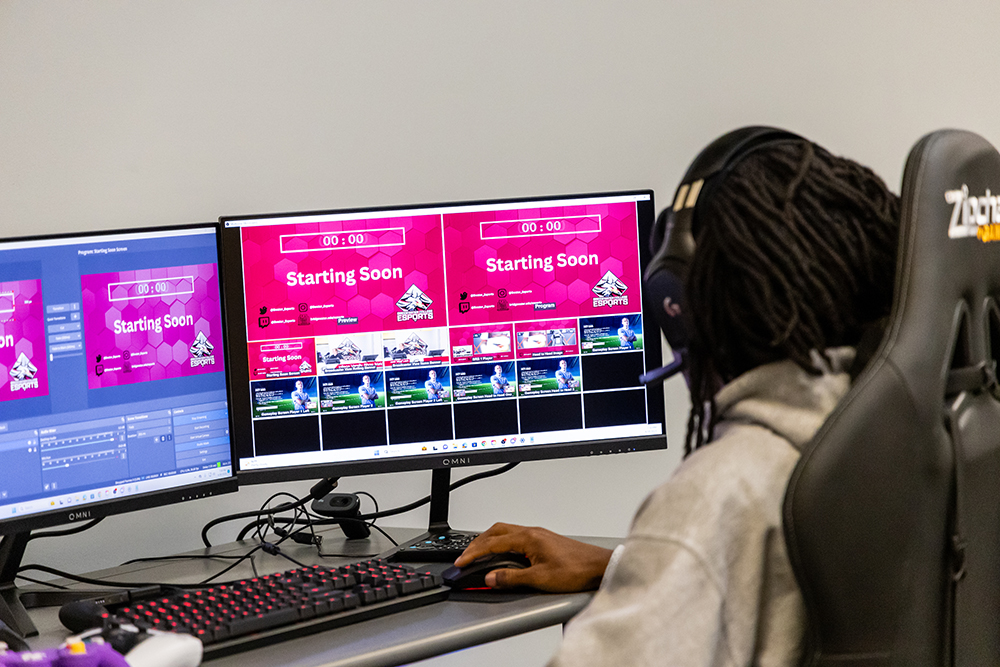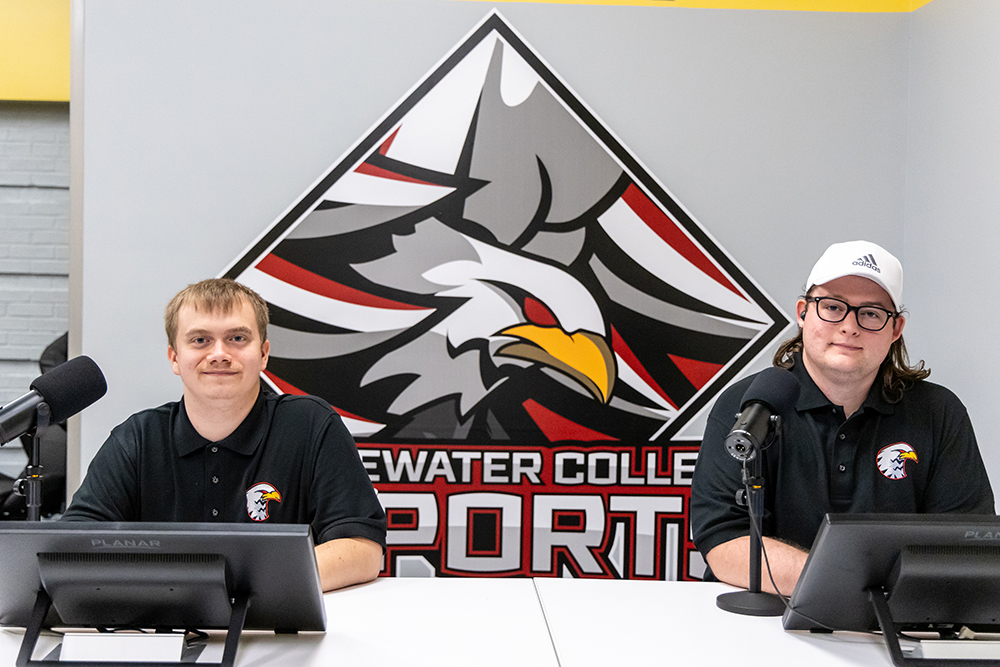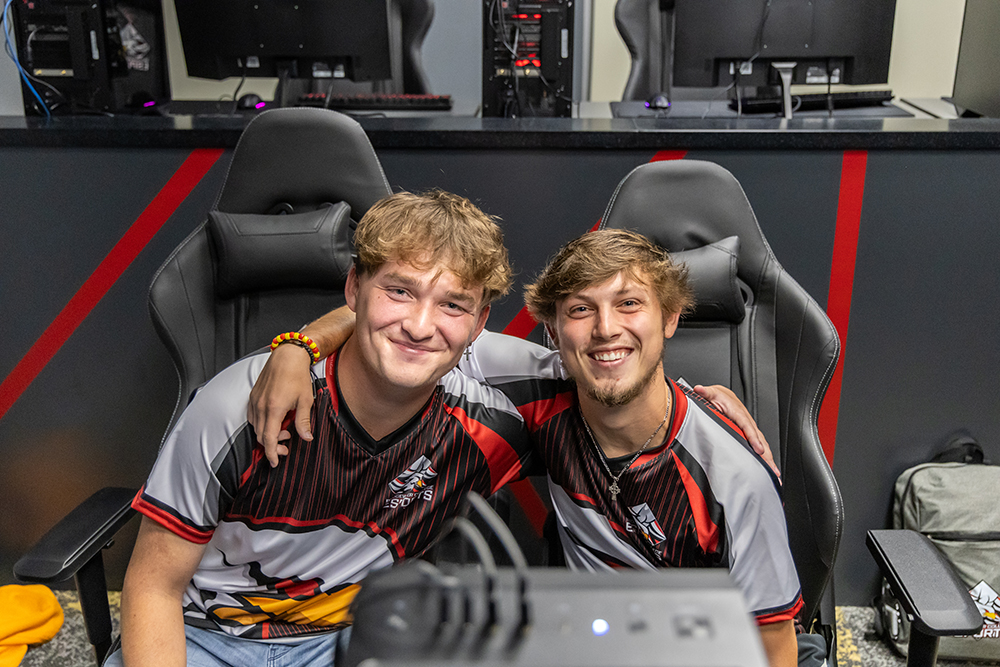Esports, which is organized, competitive video gaming that takes inspiration and mechanics from athletics and incorporates that into a digital playing field, is the largest-viewed competitive sports medium in the world. Matches are narrated by broadcasters, or “casters,” in the same way as traditional sports, including play-by-play breakdowns and explanations of what the viewers are seeing. The competitive esports collegiate scene is also fast-growing, with an increase from between 20 and 50 schools in 2015-17 to about 350 schools today.
Bridgewater College started researching the addition of a varsity esports program to its athletics roster a few years ago and found the perfect champion in Tristan Supples ’21, who had just graduated with a double major in business administration and communication, technology and culture and was working in the Information Technology (IT) Center. Esports has been Supples’ passion since he was a young child, when he started playing video games recreationally and later grew into a nationally ranked esports competitor (top 2% in auto battler games).
Esports goes beyond recreational video gaming. It involves communication, teamwork and critical-thinking skills—echoing the priorities of a liberal arts educational experience.
Bridgewater launched its varsity esports program this fall with a roster of 41 students, including varsity- and junior varsity-level players in eight video game titles, as well as students on the content creation team that includes broadcasters, videographers and social media content creators. The content team livestreams and provides commentary for matches shown on the team’s Twitch, YouTube and social media accounts, much in the same way as professional esports.

The College’s program is structured like a traditional athletics program with weekly exercise sessions, a GPA requirement and designated study hall time. Competitors practice 15 hours a week—10 under Supples’ coaching in the College’s new competition and practice rooms in the Wright-Heritage Link and five on their own.
Bridgewater is a member of the National Association of Collegiate Esports (NACE) and competes against other schools in the Eastern College Athletic Conference (ECAC) and the Mid-Atlantic Esports Conference (MAEC). Titles include League of Legends, Rocket League, Valorant, Super Smash Bros. Ultimate, Overwatch 2, NBA 2K, EA FC and Madden.
Recruiting for the program was extremely successful, both with current and prospective students. Every school at Bridgewater is represented across 11 different majors. Supples’ main focus as Head Esports Coach is to create an inclusive, welcoming space for all students interested in esports (both athletes and content creators) and develop students’ skills in teamwork, time management and resiliency that will aid them in their academic careers and beyond.
“I’m overjoyed that I come into this office every day and get to live out my dream of working in esports and create a space for students to express themselves,” Supples says. “Seeing students be themselves and grow and develop through the uniqueness that is college…you can’t beat that.”
Communication, technology and culture major Gianni Maltese ’24 sees esports as a way to combine his passion for gaming with structured competition.
“Being part of an esports team is not only fun but a great way to build friendships, improve skills such as leadership and teamwork and represent our college in the competitive gaming world,” Maltese says. “It’s an experience I wouldn’t trade for anything.”

Psychology major Jacob Leach ’24 serves as president of the Esports Club on campus, which he helped Supples launch in fall 2021. For BC’s esports program, Leach serves as a caster who comments on live events and assists with directing broadcasts. This fall, he’s commented on Madden, EA FC and Valorant competitions and said “the experience is like no other.”
“I love rooting for my team and being able to provide hype and an exciting atmosphere for livestreams,” Leach says. “Being part of an official esports program and traveling to different tournaments and competing against other schools means so much to me. It’s something I’ve dreamed of.”
Leach believes his involvement in esports has improved his skills in communication and leadership, which he sees as invaluable in his professional journey.
“Esports isn’t just for people who love games; it’s for anyone,” Leach says. “It’s a welcoming environment in which you can just meet others and have fun.”
– Jessica Luck


